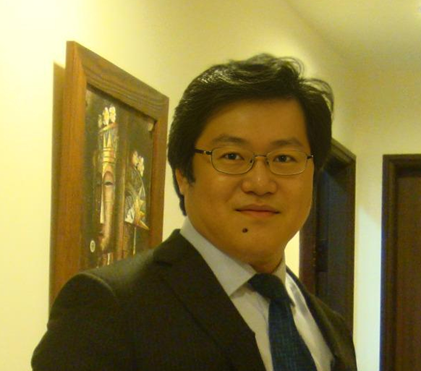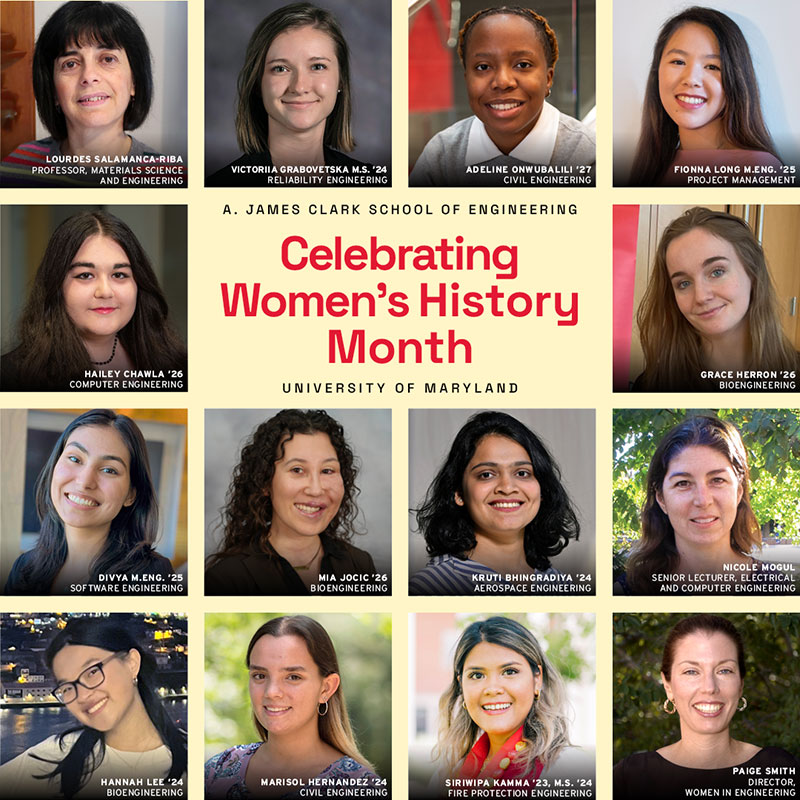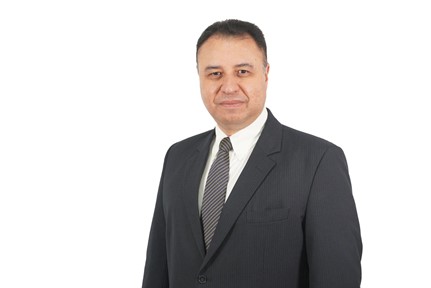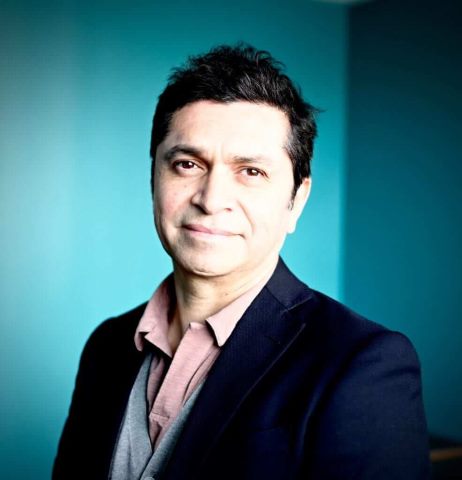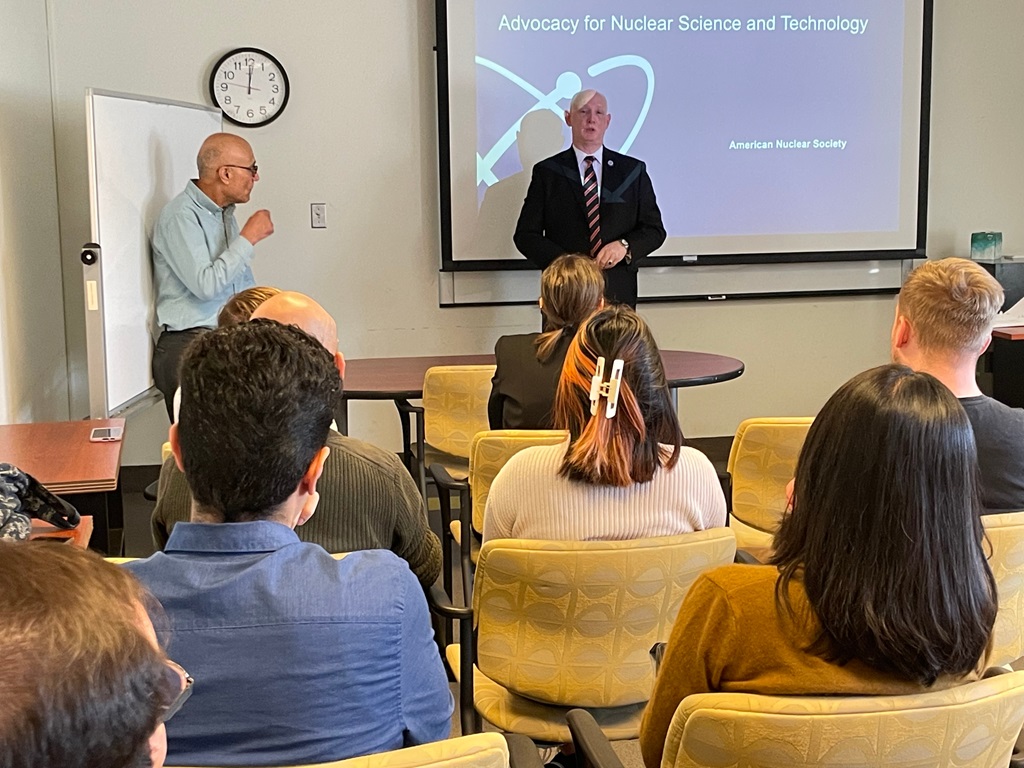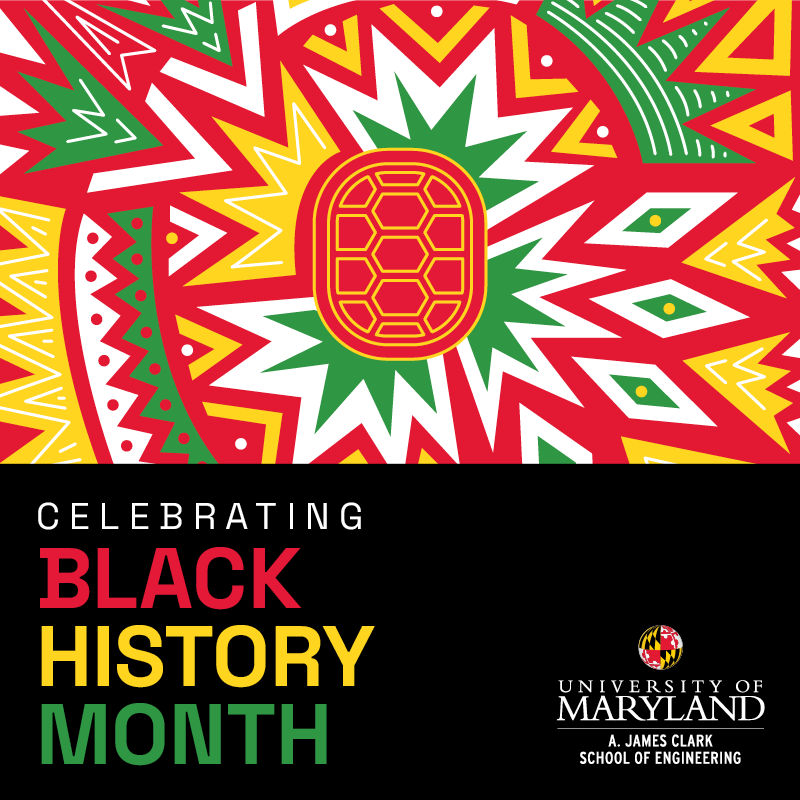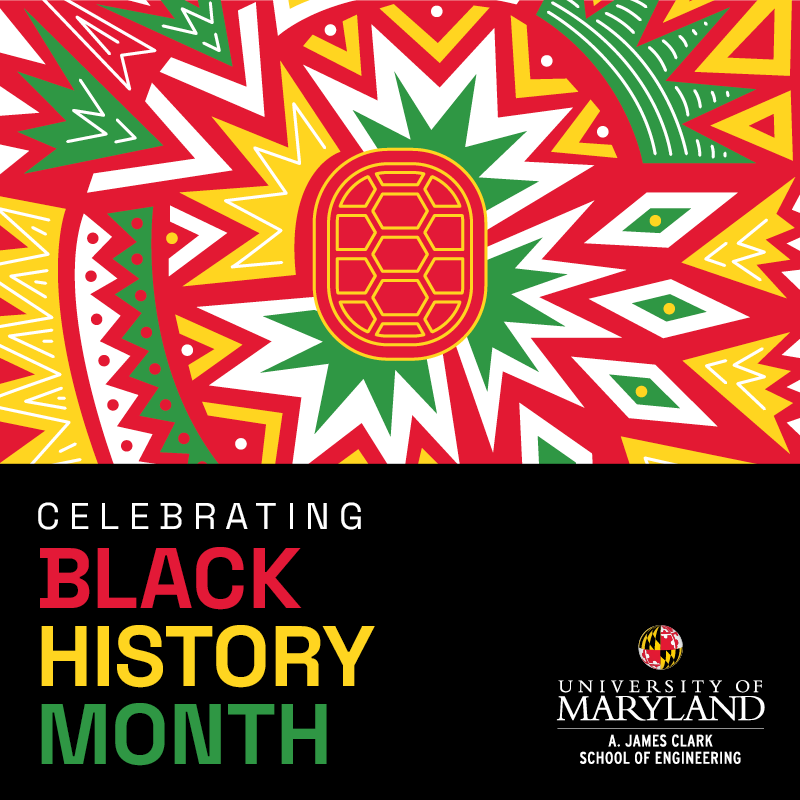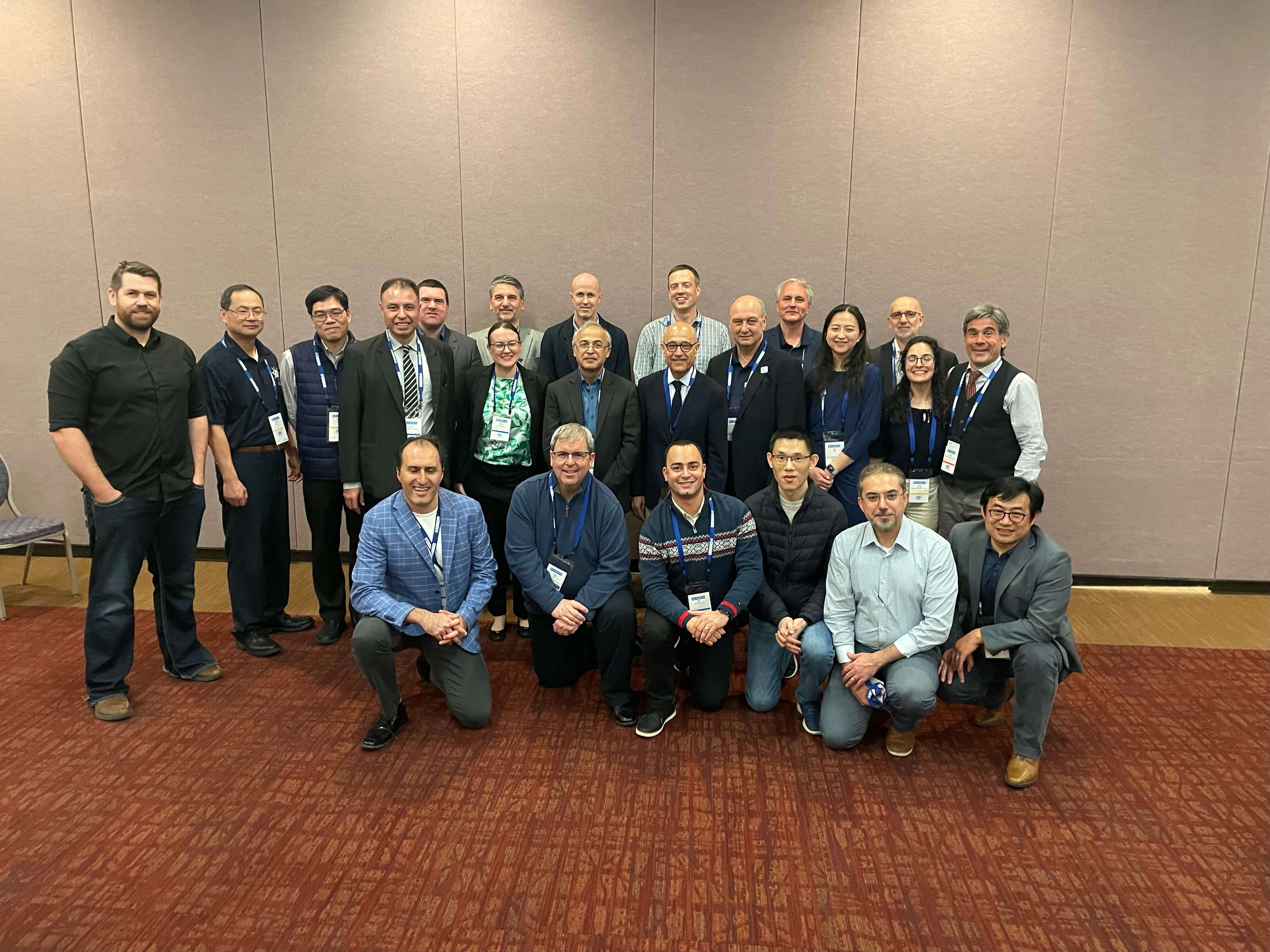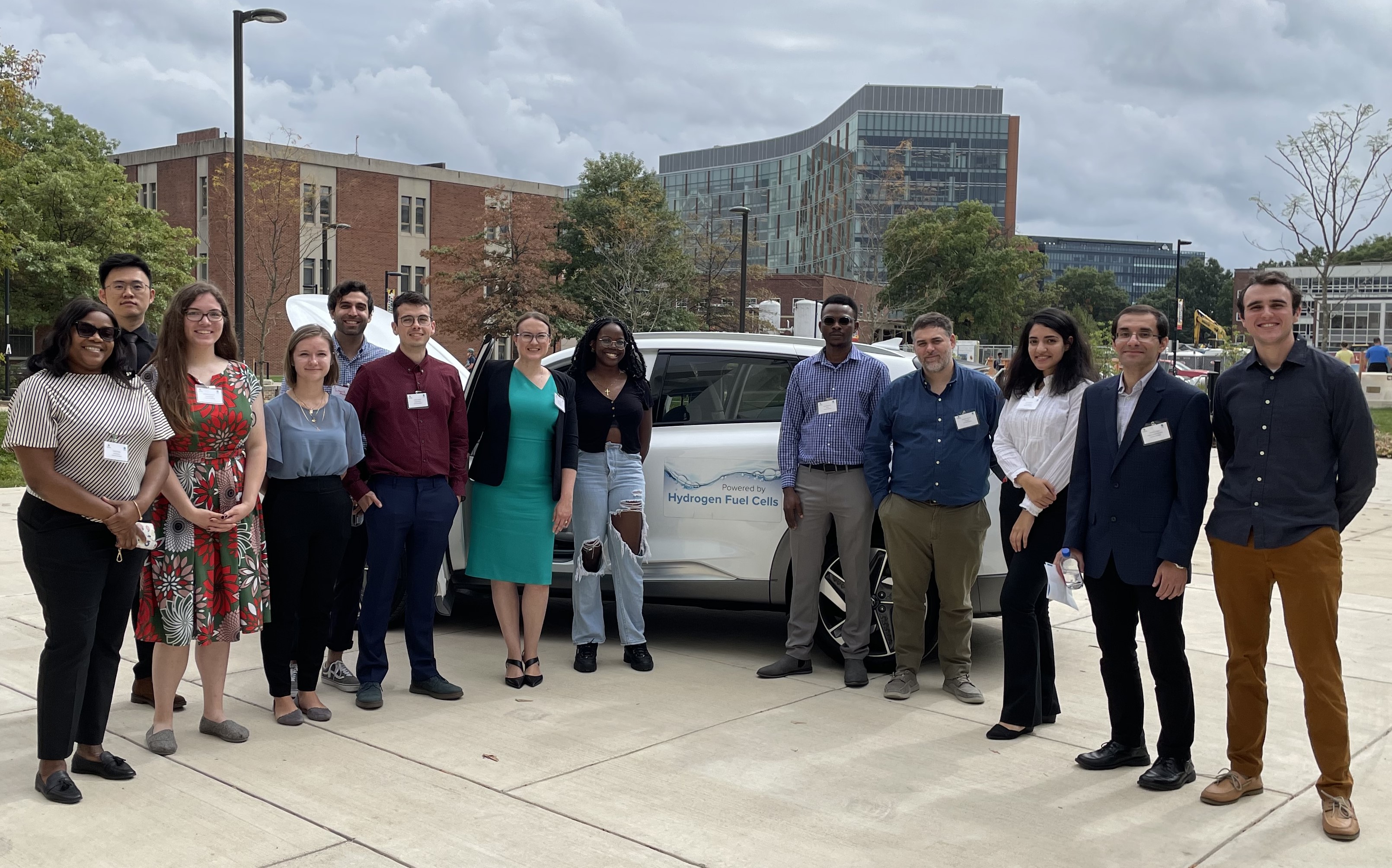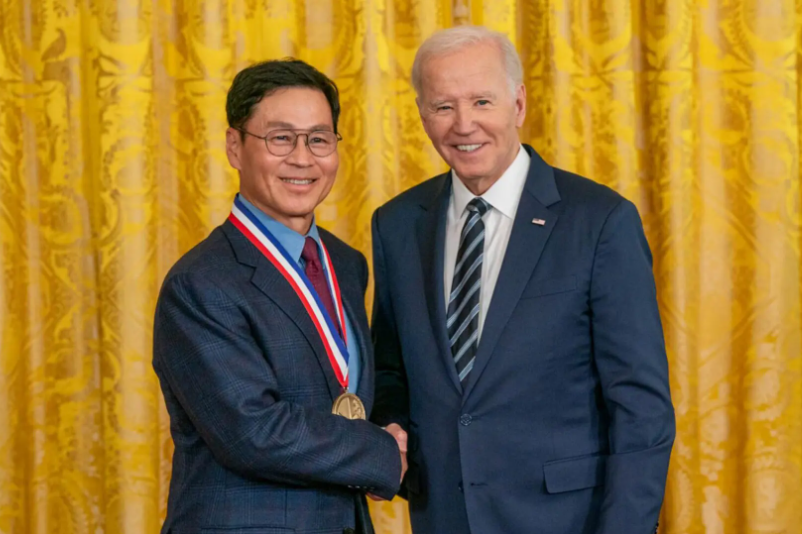News Story
Transforming Engineering: Highlighting Maryland Engineers
At the A. James Clark School of Engineering, we work to support and develop promising students from all backgrounds through their educational careers, from pre-college programs through undergraduate and graduate school, and culminating with a vibrant alum community focused on professional development and excellence. Founded in 1981, the Center for Minorities in Science and Engineering (CMSE) and its committed staff provide a unique combination of academic, financial, and social support systems to help create a culture in which all students have access to the resources and opportunities they need to succeed. The Clark School ranked No. 4 nationally (based on 2021 and 2022 data) for awarding B.S. degrees to African American students. The growing number of alums have gone on to make their own significant marks in their fields and communities. CMSE is also home to the Black Engineers Society, the student chapter of the National Society of Black Engineers, one of the largest student governed organizations in the world.
Clark School programs have changed the odds for thousands of Terps underrepresented in engineering, transforming both the school and the field. In 2023, the Clark School was recognized by the American Society for Engineering Education’s Diversity Recognition Program with bronze status, in recognition of significant, measurable progress in increasing diversity, inclusion, and degree attainment—and indicating we serve as a role model for other schools.
In celebration of Black History Month, we highlight the many impactful contributions of Black engineers in our community—students, alums, faculty, and staff—to the Clark School, our university, and world.
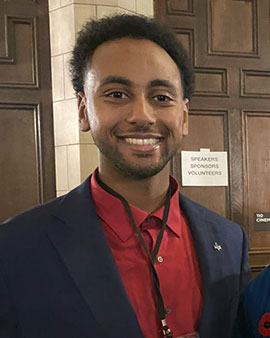 |
Hailu Daniel is an aerospace engineering senior and transfer student from Montgomery County, Maryland. With a desire to become the first Ethiopian astronaut, he is a member (and past president, from 2022–23) of the Terrapin Rocket Team. He is also a member of Theta Tau and the National Society of Black Engineers (NSBE). “Through NSBE, I have the opportunity to learn from highly intelligent and compassionate students who are fighting for change,” he said. Last summer, Daniel interned at Blue Origin as a systems engineer through the Matthew Isakowitz Fellowship Program for students pursuing careers in the commercial spaceflight industry, one of only 30 individuals selected for the highly competitive program. |
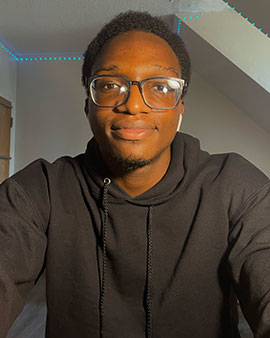 |
David Oloye is a civil and environmental engineering sophomore from Westminster, Maryland. With an interest in sustainability, he said he chose UMD because it “fosters an environment that encourages students to be and become their best.” A favorite class—and toughest challenge—during his time in the Clark School has been ENES100: Introduction to Engineering Design, which tasks student teams to design autonomous vehicles with unique missions, introducing students to machine learning and coding. “There were mishaps, but in the end our vehicle came out on top in the competition,” Oloye said. In addition to his studies, the Clark School Ambassador and QUEST Honors Program student is involved in multiple engineering organizations, including the American Society of Civil Engineers and Black Engineers Society. |
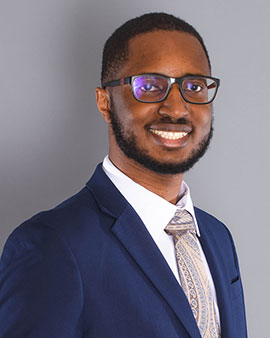 |
The son of Grenadian immigrants, Avery Layne ’19 grew up in Prince George’s County, Maryland, and received his bachelor’s degree in mechanical engineering from the Clark School. Now a Ph.D. student, he has worked in UMD’s Center for Sustainability in the Built Environment, researching energy efficiency in campus buildings. As an alum and mentor, Layne has spoken and engaged with the next generation at the Center for Minorities in Science and Engineering’s leadership retreats. The 2023–24 chair of the National Society of Black Engineers (NSBE), he hopes to make a powerful impact during the organization’s 50th year. “We want to empower NSBE members to engage with their communities to make sure we’re not leaving people behind,” he said. |
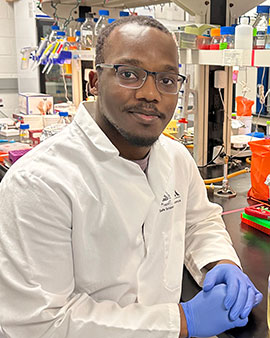 |
Wright Kingi Makambi ’19 is a chemical engineering alum and a fifth-year Ph.D. candidate focusing on protein engineering. Born in Nairobi, Kenya, Makambi grew up in Silver Spring, Maryland, and now spends much of his time at UMD researching in the Mass Spectrometry Facility and the MPRI Flow Cytometry and Cell Sorting Facility. Last year was a milestone year for Makambi, whose work was published in the Journal of Visualized Experiments; he also presented his research at the Gordon Research Conference for Antimicrobial Peptides in Lucca, Italy and gave his first oral presentation. In addition to his studies, Makambi has been involved with multiple organizations including the National Society of Black Engineers. |
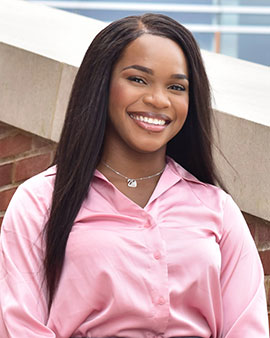 |
Growing up in Nigeria, civil engineering Ph.D. candidate Nneoma Ugwu saw the community impact of infrastructure projects firsthand. Turning her focus to transportation, her graduate research under Clark Distinguished Chair Deb Niemeier focuses on equity issues surrounding electronic vehicles, such as areas Ugwu calls “charging deserts.” She has received the Clark Doctoral Fellows Mid-Career Award, been active in the ITS-ITE (Intelligent Transportation Society of America and Institute of Transportation Engineers) Student Chapter and Graduate Student Government, and is a member of numerous professional organizations. Ugwu hopes to graduate this year and become a consultant for a transportation company. |
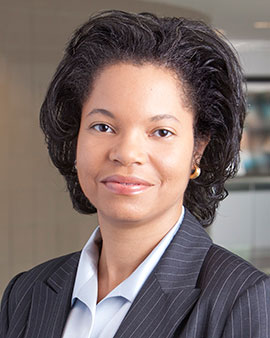 |
Kimberly Brown Ph.D. ’01 began working in laboratory compliance while she was still an intern studying chemical engineering at UMD. She founded Maryland-based Amethyst Technologies in 2006 to provide development and compliance services for the biotechnology, pharmaceutical, healthcare, and food and beverage industries in the U.S. and in developing countries. “Our challenge is, how can we improve access to healthcare for those people who lack health insurance and access to quality care, and who are the majority of the world’s population?” Brown said. In 2020, she launched Aeon Technologies, a lab she operates on the campus of Frostburg State University. From its start in rapid COVID-19 testing, the lab has grown to serve Western Maryland, Northern West Virginia, and other rural and under-resourced communities with nearly 200 different diagnostics. |
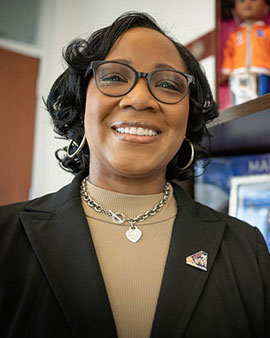 |
Growing up in modest circumstances on Maryland’s Eastern Shore, Donya Douglas-Bradshaw ’94 faced many disadvantages; however, she had strengths that would take her far as a mechanical engineering major at the Clark School and beyond. Today, she is deputy director for planning and business management at NASA Goddard Space Flight Center’s Engineering and Technology Directorate. It’s only the latest among her NASA roles that have also included managing the 2021 Lucy Mission, the first-ever mission to Jupiter’s Trojan asteroids. Meanwhile, Douglas-Bradshaw is an advocate for greater female and minority representation in the space industry. “I really view it as my duty to use my skills and talents for the betterment of work, society, and my community,” she said. |
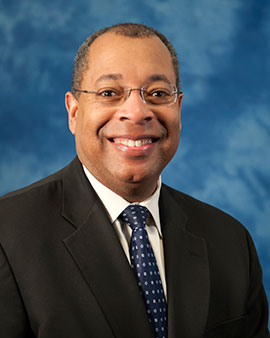 |
When Chris Jones Ph.D. ’97 was studying at the Clark School, he was one of just a handful of Black aerospace engineering doctoral candidates in the U.S. After finishing his Ph.D. with some help from scholarships, he led work on innovative rotorcraft technology and joined Northrop Grumman in 2004 as director for the Airborne Early Warning Program, and later, as corporate vice president and president of the company’s Technology Services Division. He credits the Clark School’s Center for Minorities in Science and Engineering (CMSE) and Alfred Gessow Rotorcraft Center for giving students “the confidence to apply [for scholarships] and get their share.” In 2020, he made good on every scholarship he received as a student, contributing to organizations from the National Society for Black Engineers to the NAACP. Among other generous Clark School scholarships, he established the CMSE Director’s Current-Use Fund, which provides for student-focused programming and center operations. |
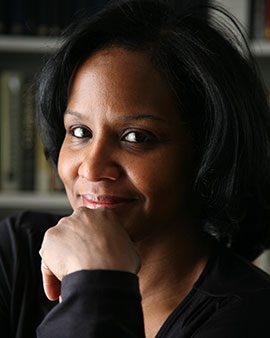 |
Carol Espy-Wilson is the first African American woman, and first African American in the Department of Electrical and Computer Engineering, to achieve tenure and be promoted to full professor. Highly acclaimed as a researcher and inventor in the field of speech communication, she was named a fellow of the Institute of Electrical and Electronics Engineers in 2021. Her company, Omni Speech, translated research in her lab into AI-powered speech processing software that aims to revolutionize the enhancement of voice experiences across apps and devices. Having overcome many obstacles to reach success, she says she hopes “to inspire others, especially Black women, to believe in themselves and break more barriers.” |
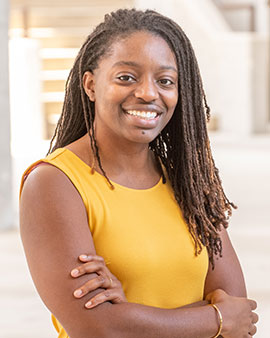 |
Erika Moore is an assistant professor with the Fischell Department of Bioengineering, where she serves as the principal investigator of the Moore Lab, which she founded in July 2020. The lab is committed to engineering biomaterial models that harness the regenerative potential of the immune system, particularly addressing health disparities. Beyond the lab, Moore is the founder and co-leader of the mentorship and support program BlackInBME for trainees and faculty, and of Moore Wealth, a nonprofit aimed at equipping students with financial literacy skills. Moore’s significant contributions have earned her esteemed accolades and awards, including the NSF CAREER Award in 2023 for her research on macrophage immune cells. |
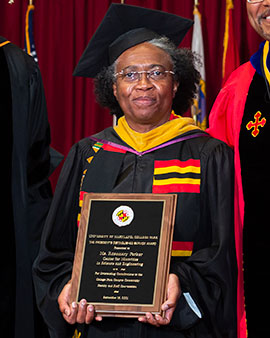 |
Throughout her more than 40 years of leadership at the Center for Minorities in Science and Engineering (CMSE), center director Rosemary Parker has supported more than 10,000 students, from high schoolers to doctoral candidates; attracted millions of dollars of funding from government and industry sources; and created a plethora of programs, all to strengthen diversity among the university’s STEM graduates. Parker came to UMD in 1979, first serving as an undergraduate advisor, then assistant and acting director of CMSE before taking the reins in 1989. She boils down the center’s mission to a few words: “It’s really about helping students achieve their dreams,” she said. In 2021, Parker was honored with the President’s Distinguished Service Award for her exceptional performance, leadership, and service. |
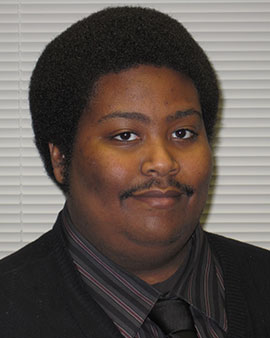 |
Keystone Lecturer and aerospace engineering alum Jarred Young ’09, M.S. ’13, Ph.D. ’17 was inspired by his grandfather, a machinist at the NASA Goddard Space Center, to take an interest in all things space-related. Today he counts having been a part of two successful NASA missions as an intern at Goddard among his greatest successes. Young’s academic journey was not without its struggles. But the Center for Minorities in Science and Engineering and the LSAMP Undergraduate Research Program provided him with community—and even helped him secure an NSF fellowship for graduate school. “I doubt I would be a Keystone Lecturer or even have a graduate degree were it not for the connections and insights I got at the center,” he said. |
Learn More and Get Involved: 2024 Black History Month Events at Maryland
Each year, the university’s Office of Multicultural Involvement and Community Advocacy coordinates a calendar of events to commemorate national Black History Month. Join in.
Published February 12, 2024

